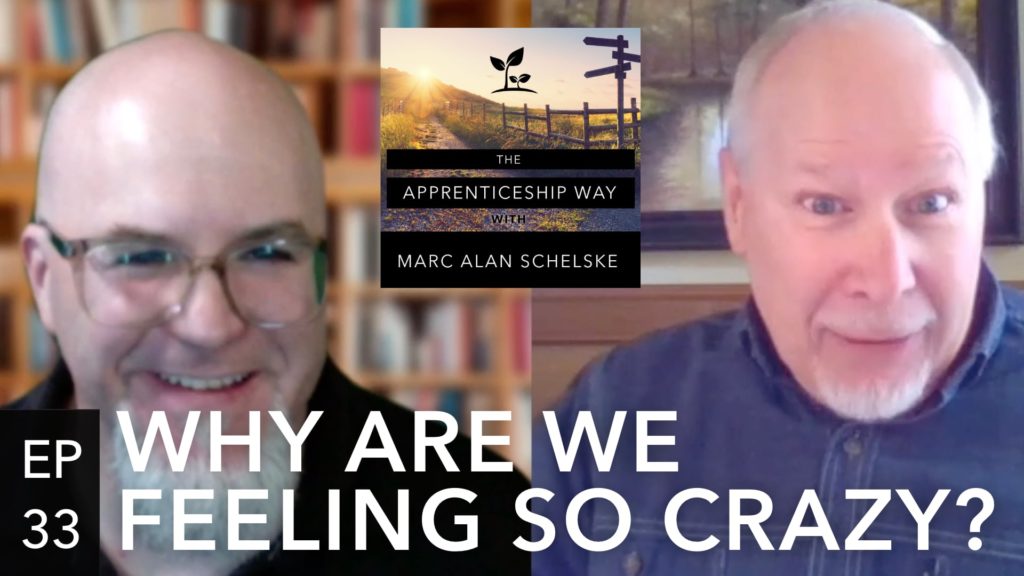Why are we feeling so crazy, and what can we do about it – Trauma response in the time of pandemic & protests (TAW033)
Manage episode 310319694 series 3052221

Episode 033 – Why are we feeling so crazy, and what can we do about it – Trauma response in the time of pandemic & protests
Covid-19, Masks, Quarantine, and now protests against racial injustice and police brutality? If you’re feeling overwhelmed, or depressed, or angry, or confused, you are not alone. Why are we feeling this way and what can we do about it?
Show Notes
- Byron Kehler is a trauma therapist with nearly 40 years of professional experience. Learn more about him at www.ByronKehler.com.
- The next wave of the COVID-19 pandemic is trauma. You may already be experiencing it.
- How you are responding to the pandemic, as well as the protests, is shaped by your story because of the impact of State-Dependent Memory.
- State-Dependent Memory is the psychological phenomenon where certain kinds of memories are easier to recall (sometimes involuntarily) when you are in the same or similar physiological state.
- The pandemic and protests are bringing up unresolved pain and even trauma from the past. This is manifesting in feelings of powerlessness, increased anxiety, fear of uncertainty, anger in response to feeling violated, and binary responses and polarization.
- What can we do to limit the impact of these factors in our lives?
- 1) Be aware of the impact of your own story. Ask yourself, “Where else in my life did I feel like this growing up?” Consider how your current reactions might connect to your story.
- Note that the more out of proportion your emotional response, the more likely it is involving your story.
- 2) If your routine has been disturbed by the new COVID & Social-Distancing reality, built a new routine. Routine is a “container” for our mental health.
- 3) Keep up with your basic self-care. Eat. Sleep. Rest. Limit news and social media.
- 4) Spend time outside and in nature, when possible.
- 5) Stay connected to your family, friends, or supportive community through whatever means you are able to.
- 6) Reduce media consumption.
If you prefer, watch and share the video version on Youtube.
Resources Mentioned
Learn what’s happening in your body and brain when you feel those big emotions, how they are connected to your story, and how to navigate them with wisdom. This is the online version of the live workshop. 5 hours of video teaching, guided journaling exercises, 23-page downloadable notes packet and more. Learn more at the link above.
Sort out your complicated feelings with this guided journal. The first 30 pages teaches you the basics of what emotions are, what is happening in your body and brain when you feel them, and what they mean. The rest of the workbook is a template you can use to walk through an emotional experience so that you can understand it and respond with wisdom. Learn more at the link above.
Find My Stuff
- The Wisdom of Your Heart: Discovering the God-Given Purpose and Power of Your Emotions.
- Discovering your Authentic Core Values: A Step-by-step Guide
- Untangle Workbook: A guided journaling process for untangling emotions and finding wisdom.
- Subscribe to my Email List.
- Subscribe to The Apprenticeship Way on iTunes and all other podcasting apps.
- Find a video version on my Youtube Channel.
53 episódios




